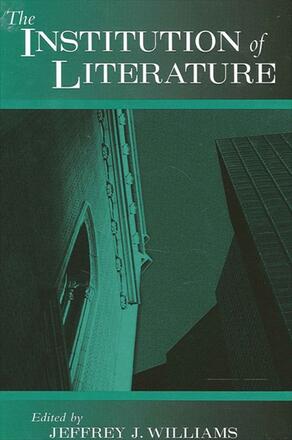
The Institution of Literature
Alternative formats available from:
Leading voices in literary and cultural studies examine the study of literature at the college level, including the fate of theory, the rise of cultural studies, the academic “star” system, and the difficult job market.
Description
In response to the classic question "What is literature?" we usually look to the novels, poems, and plays on our shelves. The Institution of Literature turns this question around, looking instead at the institutions that house literary study. It examines how our institutional practices, protocols, and structures mediate and produce what we call "literature." It shines light on usually hidden but formative dimensions of literary study: from the institutional economy governing theory to the star system of professional reputation; from the corporatization of cultural studies to the reconfiguration of our roles as resource managers rather than literary scholars; and from the position of graduate students to the hierarchical structure of our professional organizations. Gathering contributions from critics such as Michael Bérubé, Terry Caesar, Lennard Davis, Vincent B. Leitch, Devoney Looser, David R. Shumway, James J. Sosnoski, and Evan Watkins, The Institution of Literature forges an original and timely line of research, both criticizing current professional forms of literary study and proposing possibilities for change.
Jeffrey J. Williams is Associate Professor of English at the University of Missouri. He is the author of Theory and the Novel: Narrative Reflexivity in the British Tradition and editor of PC Wars: Politics and Theory in the Academy.
Reviews
"A copy … should be on the shelf of every literary and cultural-studies practitioner concerned with the way our institutions and workplaces shape the possibilities of our scholarship and teaching." — College Literature
"These essays are cutting-edge examples of work being done on 'the profession' and 'the institution,' issues that have been dominating advanced literary and theoretical thinking for the past decade. The timeliness of this collection is a strength." — Russell Reising, author of Loose Ends: Closure and Crisis in the American Social Text